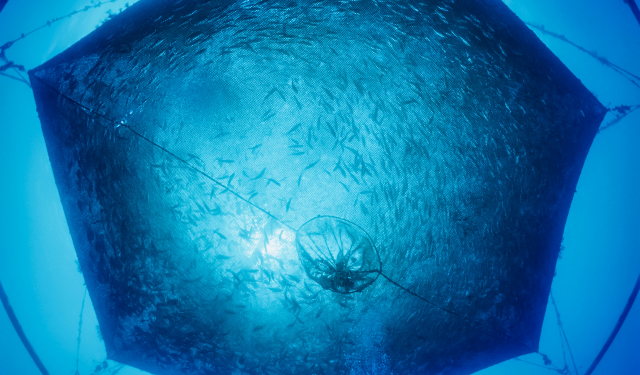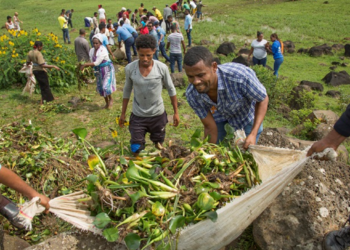Cote d’Ivoire: Fight against antimicrobial resistance. Aquaculture and agriculture stakeholders in a workshop to validate the good practice guide – As part of the fight against antimicrobial resistance, the project of the Food and Agriculture Organization of the United Nations (FAO) and the Pasteur Institute of Côte d’Ivoire (IPCI) brought together around twenty participants from the field of aquaculture, agriculture and human health at a workshop to validate the guide to good practices and the prevention of risks related to Antimicrobial Resistance (AMR), from Monday 23 to Tuesday 24 January in Cocody.
The aim of the project is to promote the good practices necessary for the activity of aquaculture farmers and market gardeners as well as to identify emerging resistant bacteria in these ecosystems and the environment in order to propose alternatives for the sustainable management of health risks.
Opening Ceremony for Workshop on Improving Food Security through Responsible Antimicrobial Use in Fish Farming and Market Gardening
Opening the ceremony, Professor Guessennd Nathalie, RAM national focal point on behalf of the Director of the Pasteur Institute of Côte d’Ivoire, Prof Mireille Dosso thanked all the participants for coming to this workshop to contribute their stone to the building of food security by providing their observations and relevant inputs for the improvement of this guide which must be a compass for fish farmers. She took the opportunity to invite participants to be sensitizers by adopting the right attitudes in order to avoid health risks in the uncontrolled use of antimicrobials in fish farming and market gardening environments. It is necessary to achieve a socio-cultural impact by raising awareness of the change in the behavior of the actors and to achieve a scientific impact by the production of monitoring data on the state of the situation on AMR in aquaculture, market gardening and livestock ecosystems. peri-urban and urban and the slaughterhouse.
Taking the floor, Prof. Céline Loba wife Kacou, research professor at the Ecole Normale Supérieure in Abidjan, specialist in hydrobiology and fish farming, indicated that this guide validation workshop will allow fish farmers to have attitudes to adopt before installing the fish farm and during the activity.
For her, it is important to treat the drain water from the fish ponds before discharging it into nature. This guide will build the whole chain through the different behaviors to adopt.
Workshop on Ensuring Food Security and Promoting Responsible Antimicrobial Use in Fish and Market Gardening Production
“This workshop meets our expectations a lot. The materials we work on are intended for human consumption and therefore, we should be sure upstream of the quality of what is produced and the environment in which they are stored. produced in such a way that the food security of the population in terms of fish is guaranteed” suggested Martin Atta, president of the national association of aquaculturists of Côte d’Ivoire (ANAQUACI);
For Miss Kouassi Amenan Rose, Agronomist Engineer, head of the quality control and packaging of plant products department in the plant protection and quality control department, the purpose of this guide is to advocate good practices for the cultivation of market gardeners by avoiding repeated use of phytosanitary products.
“Exceeding the prescribed doses of phytosanitary products can lead to antimicrobial resistance. All this aims to protect the health of consumers who must eat healthily,” she added.
As for Dr. Diané Koua Maxime Researcher at the Pasteur Institute in Côte d’Ivoire, he said that this guide is put in place so that actors can abandon old and bad habits and adopt more ecological methods, more effective in producing healthy fish so that everyone who eats will have good health.
It should be noted that structures such as the Ivorian Antipollution Center (CIAPOL), the Pasteur Institute of Côte d’Ivoire (IPCI) and the Nangui Abrogoua University (UNA) took part in this workshop.
Cote d’Ivoire: Fight against antimicrobial resistance. Aquaculture and agriculture stakeholders in a workshop to validate the good practice guide









